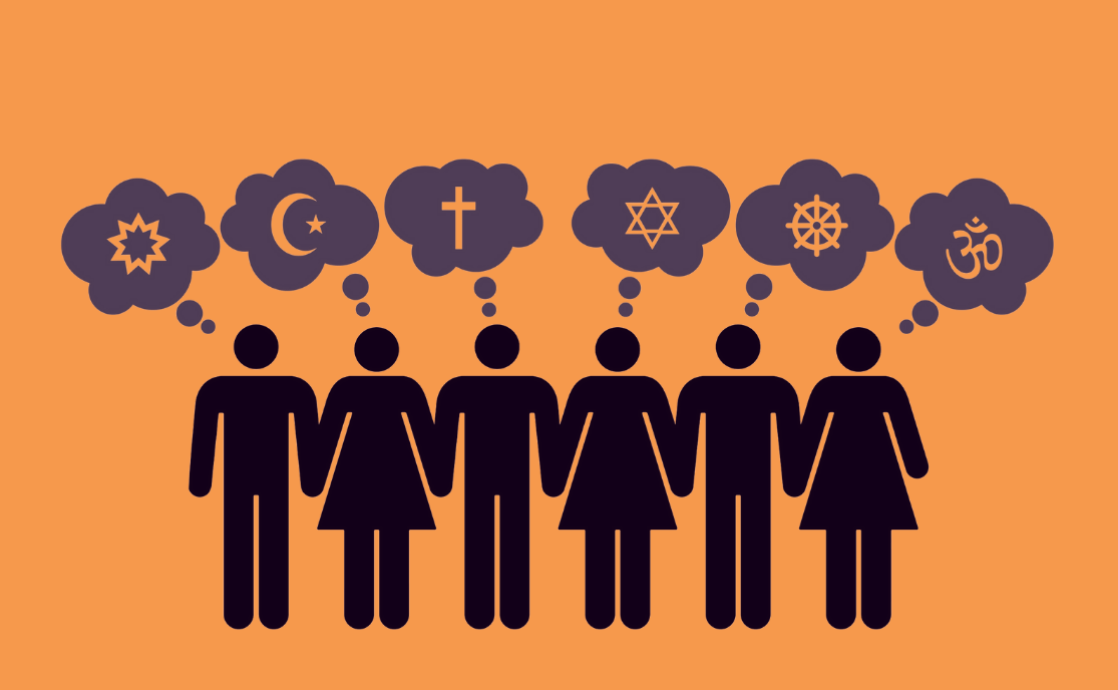The exploration of religious beliefs often leads to an intricate tapestry of thought, culture, and spiritual experience. At the core of many spiritual traditions lies a quest for understanding and unity—qualities that are fundamental to human existence. Within the Bahá’í perspective, this quest is especially resplendent, positing that the major faiths of the world are not divergent but rather facets of a singular divine essence. The metaphor of the “one ocean, many rivers” elegantly encapsulates this theosophical viewpoint. Each river, while distinct in its currents and tributaries, ultimately flows into the vast expanse of the same ocean, symbolizing the shared spirituality that unites humanity.
This article endeavors to delineate the Bahá’í teachings regarding the unity of major faiths, elucidating their common principles, historical developments, theological insights, and the ethical imperatives that arise from viewing these religions as interconnected.
Understanding the Foundations of Religious Unity
Bahá’í teachings assert that all major religious traditions emanate from a singular source, through the manifestations of divine will. The Bahá’í Faith articulates a worldview wherein each prophet—Moses, Jesus, Muhammad, and Bahá’u’lláh—has contributed unique guidance suited to their respective historical contexts. This perspective fosters a deep appreciation for religious diversity, promoting the notion that various faiths are alternate paths leading to the same spiritual truth.
This concept of unity does not imply the obliteration of differences; rather, it advocates for harmonizing their essences, emphasizing shared ethical teachings such as compassion, justice, and altruism. Thus, the Bahá’í viewpoint serves as a lens through which one can endeavor to synthesize the wisdom encapsulated within all faiths.
Historical Context as a Catalyst for Unity
Throughout history, religious schisms have frequently arisen from cultural, political, and social forces that are often extrinsic to the core teachings of the faiths themselves. Historical examination reveals a pattern in which divine messengers proliferated during times of crisis to cultivate moral guidance and harmony among discordant groups. Such historical instances—including the Codification of the Bible or the dissemination of the Qur’an—illustrate that these texts aimed to unify rather than segregate.
The narrative of religious evolution finds resonance in the Bahá’í doctrine of progressive revelation, which posits that spiritual truth unfolds gradually over time. This perspective invites adherents to recognize the divine purpose behind the emergence of various faiths. Each manifestation reveals pertinent truths applicable to the societies in which they arise, allowing for holistic spiritual growth.
Theological Concord and Divergence
Despite their diverse narratives, the major faiths possess intrinsic theological concordances. Central tenets—such as the belief in a singular God, the prophetic tradition, and the aspiration towards an ethical lifestyle—permeate the doctrines of Judaism, Christianity, Islam, Hinduism, and Buddhism. Utilizing allegories and parables, each tradition conveys profound truths about the human condition, the nature of existence, and the relationship between humanity and the divine.
For example, the Golden Rule—a doctrine urging individuals to treat others as they wish to be treated—recurs across different texts, illustrating a shared moral compass. Such interspersion of ethical wisdom emphasizes how intrinsic values transcend cultural and historical boundaries.
Nevertheless, it is essential to acknowledge the variances in belief systems and practices that add richness to religious observance. The Bahá’í teachings do not seek to homogenize this diversity but rather celebrate it as a testament to the complexity of divine revelation, akin to an artist’s palette displaying myriad colors yet contributing to a singular motif.
The Ethical Imperative of Unity
Understanding the interconnectedness of religious traditions provokes a profound ethical imperative. The Bahá’í perspective advocates for global unity, emphasizing that the realization of peace and justice is contingent upon the acknowledgment of shared human values. This ethical foundation compels individuals to transcend prejudices, fostering interfaith dialogue and collaboration.
In an era marked by communal strife and trivial differences, the Bahá’í call for unity emerges as a clarion call for action. Each person, regardless of their particular faith or lack thereof, possesses the responsibility to cultivate an environment of mutual respect and understanding. Embracing the idea that diverse religious practices are manifestations of the same truth encourages societies to move towards harmonious coexistence.
Conclusion: The Symphony of Spirituality
The metaphor of a symphony resonates profoundly when articulating the Bahá’í understanding of religions’ unity. Each faith, akin to a distinct instrument, contributes its unique sound to a larger orchestral composition. When harmonized, these voices create a transcendent musical experience that transcends individual notes. The challenge lies in recognizing that differences do not detract from the overall melody of spirituality.
In essence, Bahá’í teachings illuminate pathways toward understanding and diversity, urging followers and seekers alike to traverse the rich landscape of beliefs with an open heart and a willing spirit. The call for unity among the major faiths serves not only as a philosophical ideal but also as a practical guideline for engendering a compassionate and just world. Thus, as individuals partake in the grand and intricate design of faiths, they are invited to appreciate the beauty inherent in their shared quest for truth.
